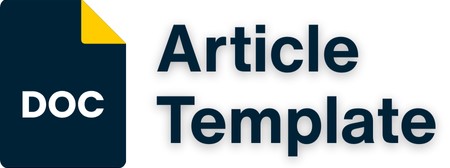THE IMPLICATIONS OF DIGITAL INNOVATION AND ANALYSIS OF THE RELATIONSHIP BETWEEN ECONOMIC GROWTH, THE WORK FORCE AND INFLATION IN INDONESIA
Keywords:
Digital Innovation, Economic Growth, Force Labor, Inflation, VECMAbstract
The purpose of this study is to analyse the implications of digital innovation of economic growth, labour force and inflation based on a literature study and analyse the relationship between economic growth, labour force and inflation in Indonesia. This study used secondary data obtained from the World Bank in the form of annual data with a quantitative descriptive approach using the Vector Error Correction Model (VECM). The results showed that there was no causal relationship between the labour force and economic growth nor was there a causal relationship between inflation and economic growth, but there was a one-way relationship between labour force and inflation, namely inflation affects the labour force. In the short term, there was no single variable that had a significant influence on economic growth. The labour force on economic growth in 2000-2021 in the short term had a positive and insignificant impact, while inflation on economic growth in 2000-2021 in the short term had a negative and insignificant impact, but in the long term inflation had a positive and significant impact.
KEYWORDS: digital innovation, economic growth, force labor, inflation, VECM
References
Ajija, S. R., Sari, D. W., Setianto, R. H., & Primanti, M. R. (2011). Cara cerdas menguasai Eviews. Jakarta: Salemba Empat.
Das, K., Gryseels, M., Sudhir, P., & Tan, K. T. (2016). Unlocking Indonesia’s digital opportunity. McKinsey & Company, 1–28.
Demografi, L. (2017). Ringkasan Hasil Survei Dampak Go-Jek Terhadap Perekonomian Indonesia. Jakarta: Fakultas Ekonomi Dan Bisnis Universitas Indonesia.
Development, O. for E. C. and. (2013). Measuring the internet economy: a contribution to the research agenda. OECD Publishing.
Faisal, M., & Ichsan, I. (2020). The Analysis of Economic Growth, Unemployment Rate and Inflation on Poverty Levels in Indonesia (Using the Vector Error Correction Model (VECM) Method). Journal of Malikussaleh Public Economics, 3(2), 42. https://doi.org/10.29103/jmpe.v3i2.3210
Hasyim, A. I. (2017). Ekonomi Makro. Prenada Media. https://books.google.co.id/books?id=aoyYDwAAQBAJ
Lubis, I. F. (2014). Analisis hubungan antara inflasi dan pertumbuhan ekonomi: kasus Indonesia. Quantitative Economics Journal, 3(1).
Lütkepohl, H. (2011). Vector autoregressive models: Eui working paper eco 2011/30. European University Institute, San Domenico Di Fiesole, Italy.
Mansi, E., Hysa, E., Panait, M., & Voica, M. C. (2020). Poverty-A challenge for economic development? Evidences from Western Balkan countries and the European union. Sustainability (Switzerland), 12(18), 1–24. https://doi.org/10.3390/SU12187754
Nakamura, L. I., Samuels, J., & Soloveichik, R. H. (2017). Measuring the’Free’Digital Economy within the GDP and productivity accounts.
Nopirin. (2016). Ekonomi Moneter. BPFE UGM: Yogyakarta.
Quartey, P. (2010). Price Stability and the Growth Maximizing Rate of Inflation for Ghana. Modern Economy, 01(03), 180–194. https://doi.org/10.4236/me.2010.13021
Rosadi, D. (2012). Ekonometrika & Analisis Time series Terapan dengan Eviews (Aplikasi untuk Bidang Ekonom, bisnis dan keuangan). Andi: Yogyakarta.
Umaru, A., & Zubairu, A. A. (2012). Effect of Inflation on the Growth and Development of the Nigerian Economy (An Empirical Analysis). International Journal of Business and Social Science, 3(10), 183. www.ijbssnet.com
Widarjono, A. (2017). Ekonometrika pengantar dan aplikasi disertai panduan eviews. Yogyakarta: UPP. STIM YKPN.
Downloads
Published
How to Cite
Conference Proceedings Volume
Section
License
ECOSIA is licensed under a Creative Commons Attribution- 4.0 International Public License (CC - BY).


